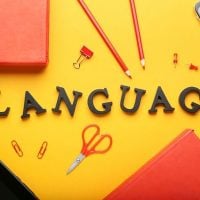Deadline: 11-Jul-22
The Global Environment Facility Small Grants Programme invites Civil Society Organisations, Academic and Research Institutions to submit project proposals that promote and support innovative, inclusive and scalable initiatives, and foster multi stakeholder partnerships at the local level to tackle and address environmental conservation in the landscapes under the following strategic initiatives in line with the country environmental management and development priorities as well as the GEF targets:
- community-based conservation of threatened ecosystems and species;
- sustainable agriculture and fisheries, and food security;
- low-carbon energy access co-benefits; and local to global coalitions for chemicals and waste management.
The overall purpose of this call for standard project proposals is to enhance innovative initiatives that address global environmental management challenges and poverty reduction through community led interventions and actions in the selected landscapes.
The overall objective of this grant is to support community led projects that address environmental challenges and enhances community livelihoods in the OP7 landscapes of Makgadikgadi Wetlands and Bobirwa Sub-District.
Funding Information
The maximum grant amount for the proposed project under this call is Botswana Pula amount equivalent to USD 50,000.00.
Duration: The proposed project is expected to run for a period of 2 years from the date of signing of the Agreement by both parties. In this regard, it is important that eligible entities set realistic timeframes that will enable completion of the project in time, within budget and with the desired results.
Outputs
In line with the approved Memorandum of Agreement (MoA), the expected outputs of the proposed projects include:
- Reports detailing progress (narrative and financial) in the overall implementation of GEF/SGP projects.
- Final product, desired results and impact as per the approved project proposal
- At least 3 knowledge products for dissemination including but not limited to; guidance notes, toolkits, posters, brochures, and video documentary, short stories, policy briefs etc.
Responsibilities
- Undertake consultations with local authorities, TACs and other relevant stakeholders in the selected Landscapes (Makgadikgadi or Bobirwa areas) for consensus building, cooperation and partnership on SGP supported projects;
- Propose pilot projects that promote environmental management and conservation focusing on either community-based conservation of threatened ecosystems and species, or sustainable agriculture and fisheries, and food security or low-carbon energy access cobenefits or local to global coalitions for chemicals and waste management;
- During implementation, Grantee projects to promote the enhancement and utilization of indigenous knowledge and traditional knowledge systems for the sustainable use of the natural resources;
- Oversee and ensure that all planned activities as per approved AWPs are implemented and adheres to the standards in line with the respective sectoral requirements;
- Conduct periodic project site visits and monitor project progress according to the approved Annual Work Plans (AWPs);
- As part of the knowledge management and communication of the GEF/SGP projects, capture and share best practices and lessons learnt from project implementation and monitoring and submit to the National Coordinator (NC) for approval and dissemination;
- Maintain good working relationship with the GEF/SGP National Coordinator and ensure continuous and timely flow of updates to the NC on all relevant matters concerning activities supported by the Programme.
Eligibility Criteria
The SGP only supports non-profit oriented institutions registered in Botswana such as; Civil Society Organizations (Non-Governmental Organizations and Community-Based Organizations), Academic and Research Institutions. Proposals submitted by the eligible entities should be as follows;
- Proof of registration as a Civil Society Organisation (CBO or NGO) including copies of registration certificate, constitution or governing documents;
- Academic and Research Institutions established with an Act of parliament, proof of registration provided;
- A consortium of CSOs can apply as partners with one CSO being the lead entity and executor of the project; institutional arrangements should show clear role clarity between the two entities.
CSOs led and working towards uplifting the inclusion of the vulnerable groups such as; Women, Youths, People Living Disabilities and San community are encouraged to apply.
For more information, visit https://procurement-notices.undp.org/view_file.cfm?doc_id=299706









































